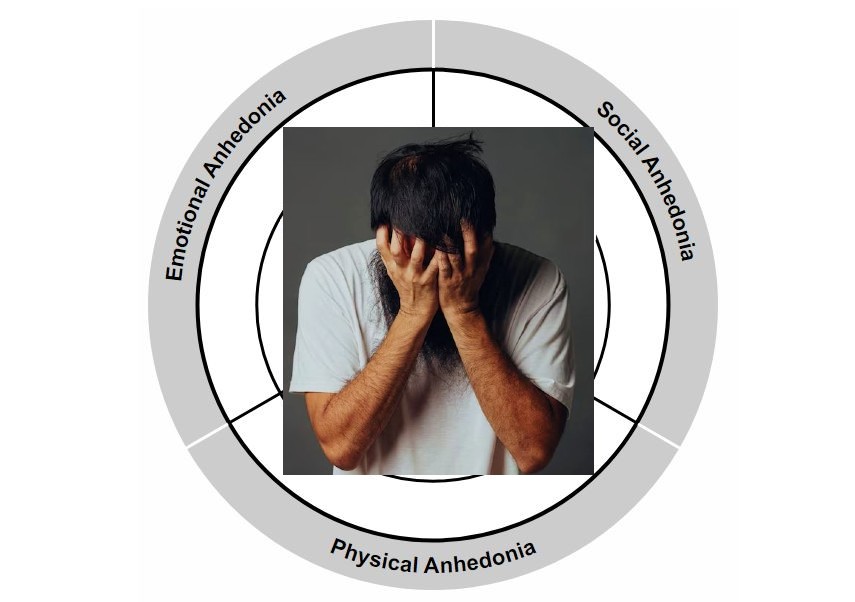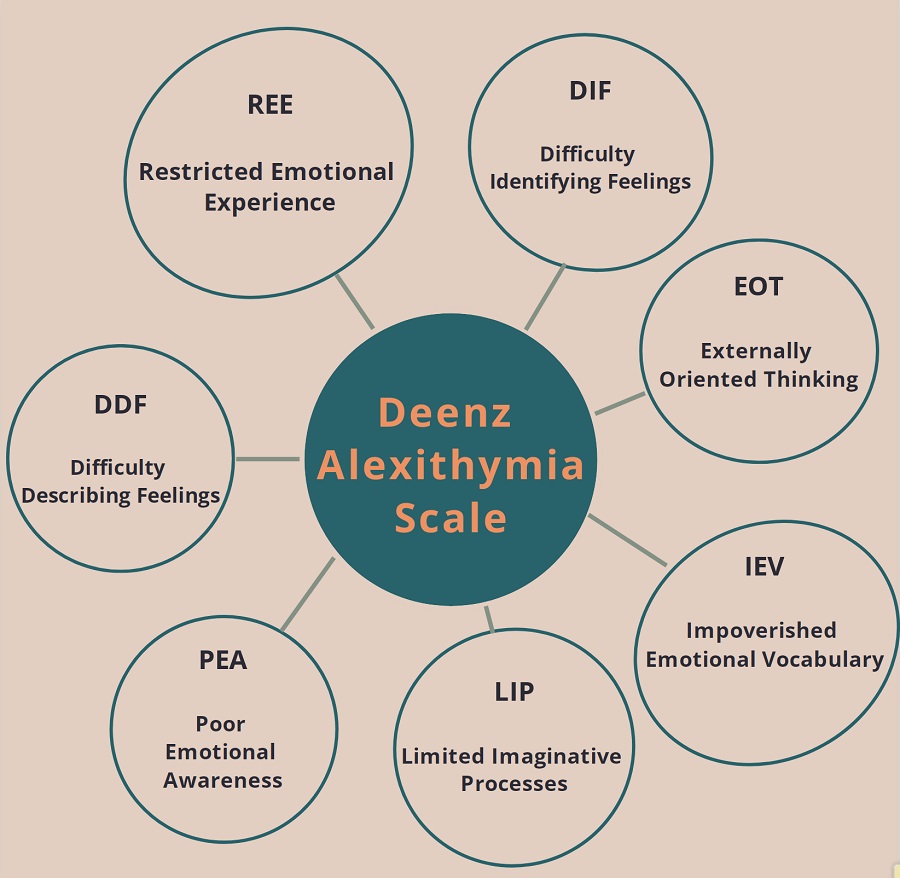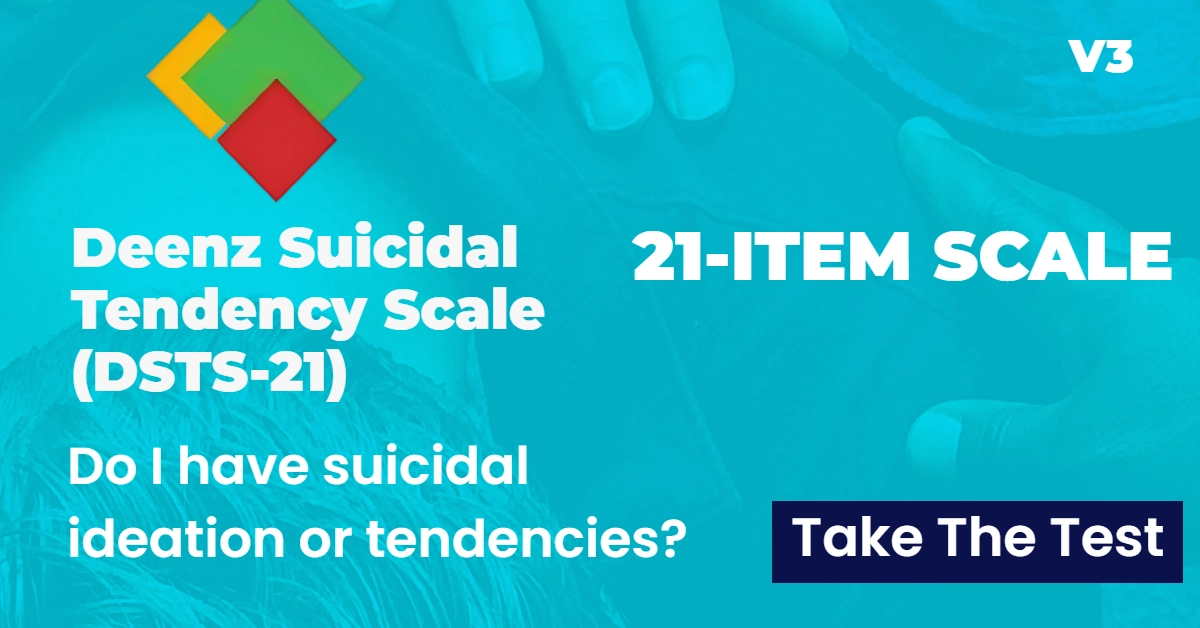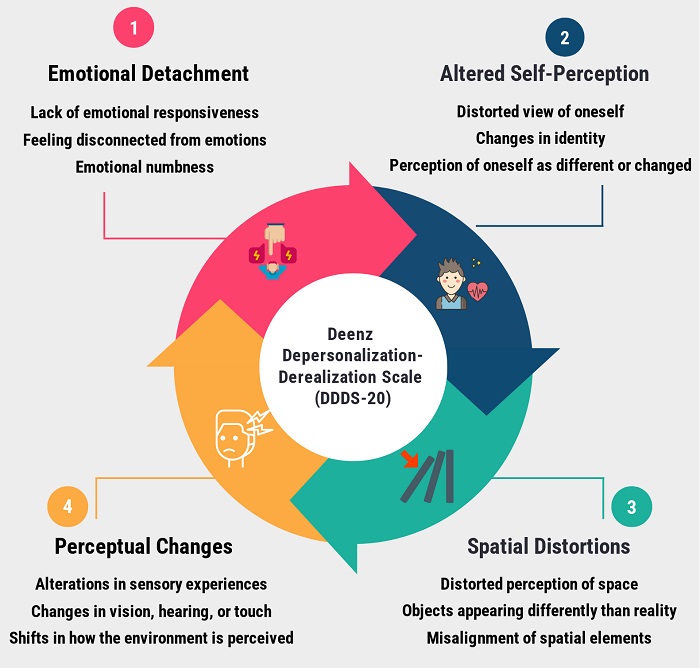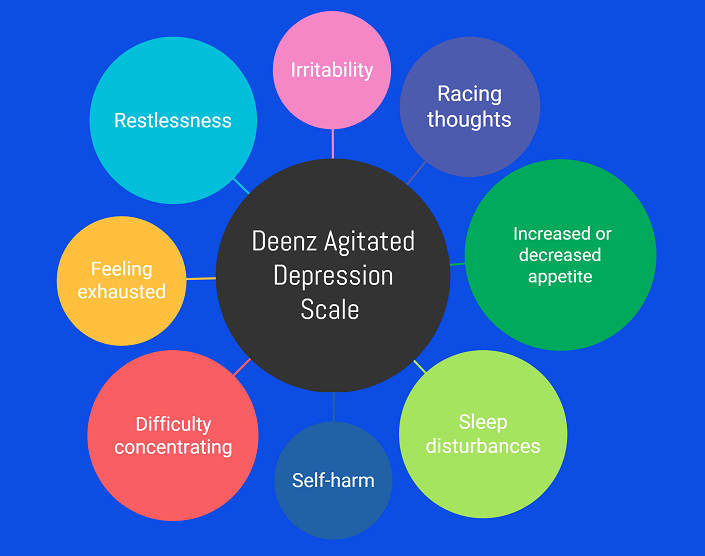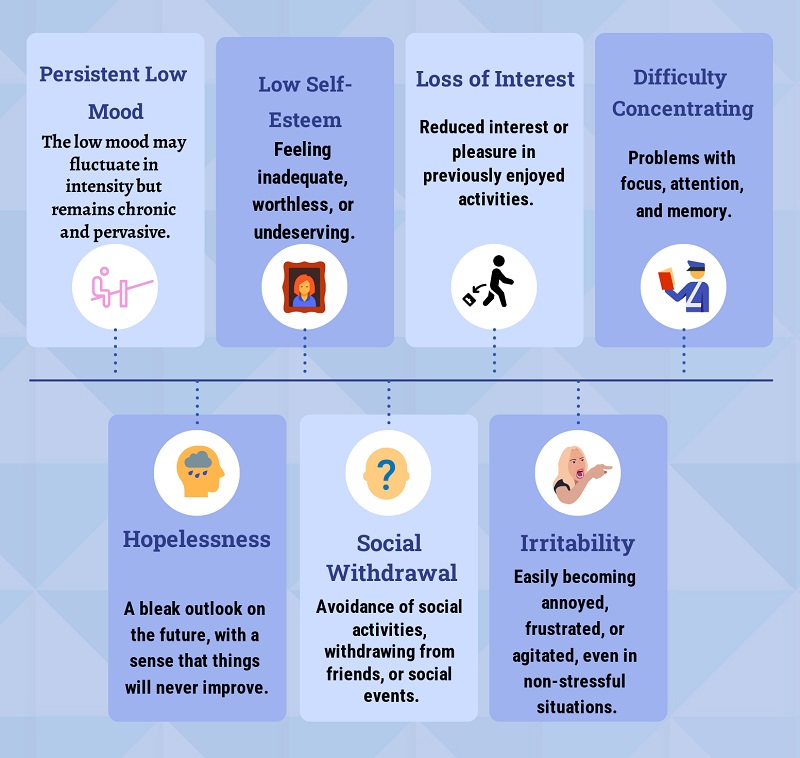Basic information | |
|---|---|
| Statements: | 15 |
| Duration: | 2–3 minutes |
| Type: | Self-assessment |
| Seminal work: | Deenz Multidimensional Anhedonia Scale (DMAS-15) |
| Publishing year: | 2022 |
|
Instructions: Deenz Multidimensional Anhedonia Scale (DMAS-15), consists of 15 statements related to life experiences and behaviors. For each statement you need to indicate your level of agreement, ranging from strongly agree to strongly disagree. | |
Participation in this self-assessment quiz is completely anonymous and NO data such as your personal information and your results are collected or stored. Results provided by this self-assessment are solely intended for educational purposes and should not be construed as medical advice.
Anhedonia refers to the inability to experience pleasure or having a harder time feeling joy or excitement in activities that are typically considered enjoyable. Anhedonia itself is not a mental health disorder but may be a key symptom of many mental health conditions, particularly mood disorders. Over the years our understanding of anhedonia particularly in social sciences has evolved. [1] Rizvi SJ…… Assessing anhedonia in depression: Potentials and pitfalls. Neuroscience & Biobehavioral Reviews.
Psychologists and researchers have found a strong link between anhedonia and depressive disorders, especially with major depressive disorder and persistent depressive disorder (formerly known as dysthymia). [2] Serretti A. Anhedonia and depressive disorders. With the release of Diagnostic and Statistical Manual of Mental Disorders (DSM-5) in 2013, anhedonia is now considered a key symptom of major depressive disorder (MDD) and persistent depressive disorder.In order to measure the tendencies and severity of the symptoms, we need to understand and access the dimensions or facets of anhedonia. [3] Shankman SA……. The different facets of anhedonia and their associations with different psychopathologies. Anhedonia: a comprehensive handbook The purpose of Deenz Multidimensional Anhedonia Scale is to access anhedonia tendencies and measure the impact of anhedonia on social, emotional and psychical levels.
Social anhedonia refers to the difficulty of finding pleasure in social activities. When we sometimes feel a bit sad and depressed, we feel the need to be left alone but a constant feeling of sadness and the struggle to experience pleasure in social interactions and relationships can be considered social anhedonia.[4] “A transdiagnostic perspective on social anhedonia.” It may impact our long-term relationships and may struggle to form connections with others.
Physical Anhedonia refers to difficulty experiencing psychical pleasure such as reduced interest in sexual interests and reduced ability in sensory stimuli. Sometimes when we feel a bit sad, we may not feel the taste or may refuse to eat, even when there may be the most favorite dish on the table. If these experiences are persistently occurring then it may be an indication of a mental health condition.
Emotional Anhedonia refers to the difficulty of feeling joy or excitement when there may be positive and strong emotions shared by others. [5] Berenbaum, (1987). Anhedonia and emotional responses to affect evoking stimuli. When we face hard times, if our loved ones try to make us laugh we may show off but we may not share a genuine or hearty laugh. Emotional anhedonia can manifest in several ways such as hopelessness and inability to express love and affection.
If you received a higher score across multidimensions of anhedonia and you experience a lack of pleasure and a loss of interest in the activities that you found once enjoyable, remember that anhedonia is not a mental health condition but may be the symptom of other mental health conditions such as depression personality disorders and mood disorders. In major depressive disorder, anhedonia is one of the main symptoms along with hopelessness and helplessness. This self-assessment quiz can not replace the formal diagnosis. If your symptoms are interfering with your daily life, you should consider consulting a mental health professional for a proper diagnosis.
How do you test for anhedonia?
Anhedonia is not a specific type of mental health disorder. In the DSM-5 it is described as a lack of pleasure and a symptom of many mental health conditions. It is an emotional state that can affect the individual’s overall quality of life.
Clinical interviews: Psychiatrists use a clinical interviews with the individuals and try to ask questions related to the life experiences and behavior. Psychiatrists try to understand and evaluate the impact of the anhedonia and other symptoms related to mental heath conditions.
Self-Report Questionnaires: Mental health professionals use self-assessments in which the patient is asked a series of questions related to individual past experiences and feelings. The most popular self-assessment questionnaire which is used by professionals is the Snaith-Hamilton Pleasure Scale, this scale is mainly focused on the determination of the anhedonia symptoms. [6] Snaith, R. Philip, et al. “A scale for the assessment of hedonic tone the Snaith–Hamilton Pleasure Scale.” Deenz Multidimensional Anhedonia Scale empathizes on understanding anhedonia on a spectrum and measure the impact.
References
Treadway, M. T., & Zald, D. H. (2010). Reconsidering anhedonia in depression: Lessons from translational neuroscience. Neuroscience & Biobehavioral Reviews, 35(3), 537-555. https://doi.org/10.1016/j.neubiorev.2010.06.006 ↩
Serretti, A. (2023). Anhedonia and Depressive Disorders. Clinical Psychopharmacology and Neuroscience, 21(3), 401-409. https://doi.org/10.9758/cpn.23.1086 ↩
Shankman, Stewart A., et al. “The different facets of anhedonia and their associations with different psychopathologies.” Anhedonia: a comprehensive handbook volume I: conceptual issues and neurobiological advances (2014): 3-22. https://doi.org/10.1007/978-94-017-8591-4_1 ↩
Barkus, Emma, and Johanna C. Badcock. “A transdiagnostic perspective on social anhedonia.” Frontiers in psychiatry 10 (2019): 216. https://doi.org/10.3389/fpsyt.2019.00216 ↩
Berenbaum, H., Snowhite, R. and Oltmanns, T.F. (1987) ‘Anhedonia and emotional responses to affect evoking stimuli’, Psychological Medicine, 17(3), pp. 677–684. doi:10.1017/S0033291700025915. ↩
Harvard Snaith, R.P. et al. (1995) ‘A Scale for the Assessment of Hedonic Tone the Snaith–Hamilton Pleasure Scale’, British Journal of Psychiatry, 167(1), pp. 99–103. doi:10.1192/bjp.167.1.99. ↩





